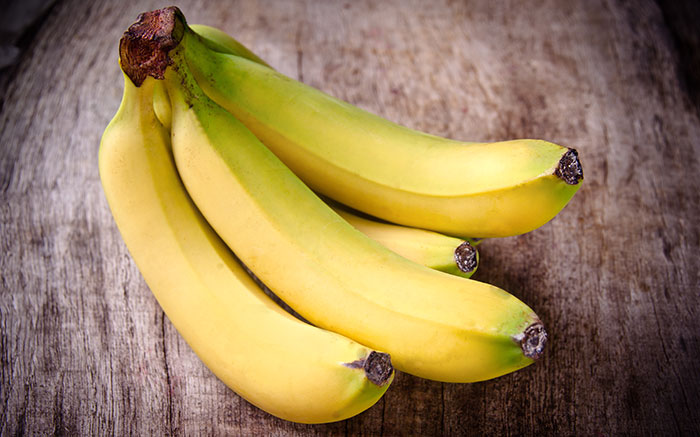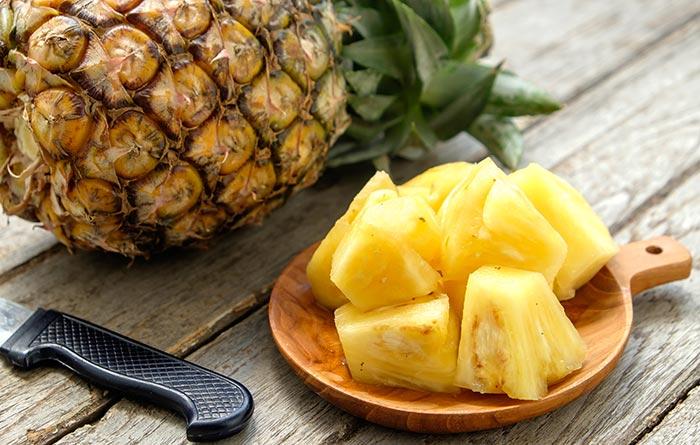Diarrhoea is the condition of having at least three loose or liquid bowel movement seach day. It often lasts for a few days and can result in dehydration due to fluid loss. Signs of dehydration often begin with loss of the normal stretchiness of the skin and irritable behaviour. This can progress to decreased urination, loss of skin color, a fast heart rate, and a decrease in responsiveness as it becomes more severe.Loose but non-watery stools in babies who are exclusively breastfed, however, are normal. It can be caused by infection, chemotherapy, radiotherapy, targeted therapies and surgery.
Types
According to the condition
Secretory
Secretory diarrhea means that there is an increase in the active secretion, or there is an inhibition of absorption. There is little to no structural damage. The most common cause of this type of diarrhea is a cholera toxin that stimulates the secretion of anions, especially chloride ions. Therefore, to maintain a charge balance in the gastrointestinal tract, sodium is carried with it, along with water. In this type of diarrhea intestinal fluid secretion is isotonic with plasma even during fasting.It continues even when there is no oral food intake.
Osmotic
Osmotic diarrhea occurs when too much water is drawn into the bowels. If a person drinks solutions with excessive sugar or excessive salt, these can draw water from the body into the bowel and cause osmotic diarrhea.Osmotic diarrhea can also be the result of maldigestion (e.g., pancreatic disease or coeliac disease), in which the nutrients are left in the lumen to pull in water. Or it can be caused by osmotic laxatives (which work to alleviate constipation by drawing water into the bowels).
Exudative
Exudative diarrhea occurs with the presence of blood and pus in the stool. This occurs with inflammatory bowel diseases, such as Crohn’s disease or ulcerative colitis, and other severe infections such as E. coli or other forms of food poisoning.
Inflammatory
Inflammatory diarrhea occurs when there is damage to the mucosal lining or brush border, which leads to a passive loss of protein-rich fluids and a decreased ability to absorb these lost fluids. Features of all three of the other types of diarrhea can be found in this type of diarrhea. It can be caused by bacterial infections, viral infections, parasitic infections, or autoimmune problems such as inflammatory bowel diseases. It can also be caused by tuberculosis, colon cancer, and enteritis.
Dysentery
If there is blood visible in the stools, it is also known as dysentery. The blood is a trace of an invasion of bowel tissue. Dysentery is a symptom of, among others, Shigella, Entamoeba histolytica, and Salmonella.
According to severity: a. Acute b. Chronic
Acute diarrhoea
Diarrhoea is usually a symptom of gastroenteritis, an infection of the bowel. Gastroenteritis may be caused by:
- a virus, such as norovirus or rotavirus, cytomegalovirus and viral hepatitis.
- bacteria, such as campylobacter, Clostridium difficile (C. difficile), Escherichia coli (E. coli), salmonella and shigella – these may all cause food poisoning
- parasites, such as the Giardia or cryptosporidium parasites.
Diarrhoea caused by contaminated food or water from a foreign country is known as ‘traveller’s diarrhoea’.
Causes of diarrhoea
Diarrhoea may have many different causes including:
- infection (with a virus, bacteria or parasite);
- a change in diet;
- food intolerance (e.g. lactose);
- drinking excess alcohol;
- inflammatory bowel disease (ulcerative colitis or Crohn’s disease);
- coeliac disease;
- malabsorption (e.g. due to problems with the pancreas);
- surgery (e.g. when part of the bowel has been removed);
- irritable bowel disease; or
- medicines (e.g. a side effect of antibiotics or some diabetes medications).
Causes of acute diarrhoea
Other short-term causes of diarrhoea include:
- food poisoning (due to eating something contaminated or ‘off’)
- emotional upset or anxiety
- drinking too much alcohol
- drinking too much coffee
- a food allergy
- appendicitis
- damage to the lining of the intestines due to radiotherapy or prescribed medications
- damage to the intestines due to reduced blood supply, for example, because of a hernia.
Chronic diarrhoea
Persistent or chronic diarrhoea is diarrhoea that has lasted longer than 4 weeks.
Conditions that can cause peruistent diarrhoea include:
- Lactose intolerance – when you have difficulty digesting dairy products
- irritable bowel syndrome – a poorly understood condition where the normal functions of the bowel are disrupted
- coeliac disease – a digestive condition where you are intolerant to the protein gluten
- Crohn’s disease – a condition that causes inflammation of the lining of the digestive system
- cystic fibrosis – an inherited condition that affects the lungs and digestive system
- diabetes – a condition where there is too much glucose in the blood
- diverticular disease – when small pouches (diverticula) form in the large intestine, causing symptoms such as diarrhoea
- gastrectomy – a surgical procedure to remove part of the stomach, for example, to treat stomach cancer
- chronic constipation – the bowel is blocked by hard, impacted faeces, but some liquids manage to seep past the blockage. this condition, called ‘spurious’ or ‘overflow’ diarrhoea, is more common in the elderly
- hormone disorders – such as diabetes or hyperthyroidism (overactive thyroid gland)
- microscopic colitis – a type of inflammatory bowel disease that causes watery diarrhoea
- chronic pancreatitis – inflammation of the pancreas, a small organ that produces hormones and digestive juices
- ulcerative colitis – a condition that causes inflammation of the colon (large intestine)
- bowel cancer – cancer in the bowel can cause diarrhoea and blood in your stools.
If you have chronic or persistent diarrhoea see your doctor so it can be investigated.
Diarrhoea caused by medicines
Diarrhoea can also be a side effect of many different medicines, including
- antibiotics
- antacid medicines that contain magnesium
- some medicines used in chemotherapy
- non-steroidal anti-inflammatory drugs
- selective serotonin reuptake inhibitors
- some antidepressants
- statins (cholesterol-lowering medicines)
- laxatives – a type of medicine that can help you empty your bowels if you are having trouble going to the toilet.
Malabsorption
Malabsorption is the inability to absorb food fully, mostly from disorders in the small bowel, but also due to maldigestion from diseases of the pancreas.
Causes include:
- enzyme deficiencies or mucosal abnormality, as in food allergy and food intolerance, e.g. celiac disease (gluten intolerance), lactose intolerance (intolerance to milk sugar, common in non-Europeans), and fructose malabsorption.
- pernicious anemia, or impaired bowel function due to the inability to absorb vitamin B12,
- loss of pancreatic secretions, which may be due to cystic fibrosis or pancreatitis,
- structural defects, like short bowel syndrome (surgically removed bowel) and radiation fibrosis, such as usually follows cancer treatment and other drugs, including agents used in chemotherapy; and
- certain drugs, like orlistat, which inhibits the absorption of fat.
Symptoms
In addition to frequent, watery bowel movements, the stool may also contain mucus, pus, blood or excessive amounts of fat.
Diarrhoea can be accompanied by:
- painful abdominal cramps;
- nausea;
- fever;
- frequent passing of watery faeces
- nausea
- stomach cramps
- stomach pains
- bloating; and
- generalised weakness.
Diarrhoea can cause dehydration, especially in young children and older people. Symptoms of dehydration in adults can include:
- thirst;
- lack of energy;
- passing less urine than normal;
- dizziness or light-headedness; and
- the skin on the back of your hand being slow to return to position after being pinched upwards.
- blood in faeces
- fever (temperature higher than 38 °C)
- inability to increase fluid intake
- painful passage of faeces
- pus in faeces
- reduced or absent urination
- repeated vomiting
Symptoms of mild to moderate dehydration in children can include:
- urgent need to go to the toilet
- abdominal pain and cramping
- change in colour of your stools
- mucous, pus, blood, or fat in your stools
- vomiting
- general body weakness and tiredness
- dry mouth;
- passing less urine than usual (often noticed as fewer wet nappies in babies and toddlers);
- irritability;
- listlessness; and
- less tears when crying.
Signs of severe dehydration in children include:
- sunken eyes, cheeks or belly, or a sunken fontanelle (the soft spot on the top of the head in babies and toddlers).
People with diarrhoea, especially the very young and the very elderly, are at risk of becoming rapidly dehydrated. This requires immediate medical attention.
Diagnosis
Diarrhoea is easily diagnosed by its symptoms.
If the diarrhoea lasts longer than two or three days, or is accompanied by symptoms such as fever or bloody stools, your doctor may perform diagnostic tests to determine the cause.
These diagnostic tests could include:
- Blood tests
- Colonoscopy (the insertion of a slender instrument into the anus so that the doctor can look at the bowel lining) to rule out cancer or inflammatory bowel diseases.
- Liver function tests -This will include testing albumin levels.
- Tests for malabsorption – These will check the absorption of calcium, vitamin B-12, and folate. They will also assess iron status and thyroid function.
- Erythrocyte sedimentation rate (ESR) and C-reactive protein (CRP) – Raised levels may indicate inflammatory bowel disease (IBD).
- Testing for antibodies -This may detect celiac disease.
- Laboratory analysis of stool sample
- Medical history
- Physical examination
- Stool culture to test for infection
- Blood tests to rule out other diseases
- Fasting tests to reveal food intolerances
- Sigmoidoscopy or colonoscopy to look for signs of inflammatory bowel diseases (these tests involve using a device with thin flexible tube and a camera and light at one end to look inside the bowel)
You should see a doctor if you or your baby / child develop any of the following signs:
- Blood, pus, or mucous in stools
- A rash
- Diarrhoea lasting longer than one week or comes back
- New or worse symptoms
Chronic or severe diarrhoea can lead to rapid dehydration, which is the excessive loss of fluids from the body. Dehydration is particularly dangerous in infants and children, the elderly, and people with weakened immune systems (e.g. people with HIV/AIDS or undergoing chemotherapy).
A doctor should also be seen if you, or a family member, becomes dehydrated. The signs and symptoms of dehydration include:
- Extreme thirst
- Little or no urine passed in the last eight hours
- Urine is dark in colour and smelly
- Reduced saliva in the mouth, dry lips, no tears, sunken cheeks or eyes
- Infants may have dry nappies (for longer than 4-6 hours) and/or have a sunken fotanelle (the soft spot on top of a baby’s head)
- Dizziness, lethargy, floppiness
- Rapid heart rate and breathing
- Cold hands and feet
- Skin that does not relax after being pinched
Treatment
Treatment for diarrhoea depends on the cause, but may include:
- Anti-diarrhoeal medications
- Oral rehydration drinks to replace lost salts and minerals.
- Intravenous replacement of fluids (in severe cases)
- Medications such as antibiotics and anti-nausea drugs
- Treatment for any underlying condition, such as inflammatory bowel disease.
Dehydration
For all cases of diarrhea, rehydration is key:
- Fluids can be replaced by simply drinking more fluids, or they can be received intravenously in severe cases. Children and older people are more vulnerable to dehydration.
- Oral rehydration solution or salts (ORS) refers to water that contains salt and glucose. It is absorbed by the small intestine to replace the water and electrolytes lost in the stool. In developing countries, ORS costs just a few cents. The World Health Organization (WHO) says ORS can safely and effectively treat over 90 percent of non-severe diarrhea cases.
- Oral rehydration products, such as Oralyte and Rehydralyte, are available commercially. Zinc supplementation may reduce the severity and duration of diarrhea in children.
Antidiarrheal medication
Over-the-counter (OTC) antidiarrheal medicines are also available:
- Loperamide, or Imodium, is an antimotility drug that reduces stool passage.
- Bismuth subsalicylate, for example, Pepto-Bismol, reduces diarrheal stool output in adults and children. It can also be used to prevent traveler’s diarrhea.
There is some concern that antidiarrheal medications could prolong bacterial infection by reducing the removal of pathogens through stools.
Antibiotics
Antibiotics are only used to treat diarrhea caused by a bacterial infection. If the cause is a certain medication, switching to another drug might be possible.
In 2003 the Center for Disease Control (CDC) put forth recommendations for the management of acute pediatric diarrhea in both the outpatient and inpatient settings including indication for referral.
Indications for medical evaluation of children with acute diarrhea include the following:
-
Younger than 3 months
-
Weight of less than 8 kg
-
History of premature birth, chronic medical conditions, or concurrent illness
-
Fever of 38ºC or higher in infants younger than 3 months or 39ºC or higher in children aged 3-36 months
-
Visible blood in the stool
-
High-output diarrhea
-
Persistent emesis
-
Signs of dehydration as reported by caregiver, including sunken eyes, decreased tears, dry mucous membranes, and decreased urine output
-
Mental status changes
-
Inadequate responses to oral rehydration therapy (ORT) or caregiver unable to administer ORT
The report also includes information on assessment of dehydration and what steps should be taken to adequately treat acute diarrhea.
Treatment of dehydration due to diarrhea includes the following:
-
Minimal or no dehydration
- Rehydration therapy – Not applicable
- Replacement of losses
- Less than 10 kg body weight – 60-120 mL oral rehydration solution for each diarrhea stool or vomiting episode
- More than 10 kg body weight – 120-140 mL oral rehydration solution for each diarrhea stool or vomiting episode
-
Mild-to-moderate dehydration
- Rehydration therapy – Oral rehydration solution (50-100 mL/kg over 3-4 h)
- Replacement of losses
- Less than 10 kg body weight – 60-120 mL oral rehydration solution for each diarrhea stool or vomiting episode
- More than 10 kg body weight – 120-140 mL oral rehydration solution for each diarrhea stool or vomiting episode
-
Severe dehydration
- Rehydration therapy – Intravenous lactated Ringer solution or normal saline (20 mL/kg until perfusion and mental status improve), followed by 100 mL/kg oral rehydration solution over 4 hours or 5% dextrose (half normal saline) intravenously at twice maintenance fluid rates
- Replacement of losses
- Less than 10 kg body weight – 60-120 mL oral rehydration solution for each diarrhea stool or vomiting episode
- More than 10 kg body weight – 120-140 mL oral rehydration solution for each diarrhea stool or vomiting episode
- If unable to drink, administer through nasogastric tube or intravenously administer 5% dextrose (one fourth normal saline) with 20 mEq/L potassium chloride
Therapies recommended for some nonviral diarrheas include the following:
-
Aeromonas species: Use cefixime and most third-generation and fourth-generation cephalosporins.
-
Campylobacter species: Erythromycin shortens illness duration and shedding.
-
C difficile: Discontinue potential causative antibiotics. If antibiotics cannot be stopped or this does not result in resolution, use oral metronidazole or vancomycin. Vancomycin is reserved for the child who is seriously ill.
-
C perfringens: Do not treat with antibiotics.
-
Cryptosporidium parvum: Administer paromomycin; however, effectiveness is not proven. Nitazoxanide, a newer anthelmintic, is effective against C parvum.
-
Entamoeba histolytica: Metronidazole followed by iodoquinol or paromomycin is administered in symptomatic patients. Asymptomatic carriers in nonendemic areas should receive iodoquinol or paromomycin.
-
E coli: Trimethoprim-sulfamethoxazole (TMP-SMX) should be administered if moderate or severe diarrhea is noted; antibiotic treatment may increase likelihood of hemolytic-uremic syndrome (HUS). Parenteral second-generation or third-generation cephalosporin is indicated for systemic complications.
-
G lamblia: Metronidazole or nitazoxanide can be used.
-
Plesiomonas species: Use TMP-SMX or any cephalosporin.
-
Salmonella species: Treatment prolongs carrier state, is associated with relapse, and is not indicated for nontyphoid-uncomplicated diarrhea. Treat infants younger than 3 months and high-risk patients (eg, immunocompromised, sickle cell disease). TMP-SMX is first-line medication; however, resistance occurs. Use ceftriaxone and cefotaxime for invasive disease.
-
Shigella species: Treatment shortens illness duration and shedding but does not prevent complications. TMP-SMX is first-line medication; however, resistance occurs. Cefixime, ceftriaxone, and cefotaxime are recommended for invasive disease.
-
V cholerae: Treat infected individuals and contacts. Doxycycline is the first-line antibiotic, and erythromycin is second-line antibiotic.
-
Yersinia species: TMP-SMX, cefixime, ceftriaxone, and cefotaxime are used. Treatment does not shorten disease duration; reserve for complicated cases.
Metformin
Diarrhoea is a relatively common symptom of taking metformin.
The symptoms will usually be most pronounced after starting on metformin and normally subside after a few weeks.
Diarrhoea and other gastrointestinal symptoms, such as nausea, stomach pain and vomiting, can be reduced by taking metformin just after or towards the end of a meal.
Autonomic neuropathy
Autonomic neuropathy is when damage occurs to the nerves which help control involuntary functions of the body, including the movements of the large intestine. If the large intestine is affected by nerve damage, you may experience alternating periods of constipation and diarrhoea.
Loperamide may also be prescribed to reduce the effects of diarrhoea. If you have spasm-like pains, an antispasmodic medication such as mebeverine or peppermint oil may help to reduce these symptoms.
Other relatively commonly taken medications which can result in diarrhoea include:
- Statins – taken to reduce cholesterol levels
- SSRIs (selective serotonin reuptake inhibitors) – antidepressant medications
Diet
Nutritionists offer some nutritional tips for diarrhea:
- Sip on clear, still liquids such as fruit juice without added sugar.
- After each loose stool, replace lost fluids with at least one cup of liquid.
- Do most of the drinking between, not during meals.
- Consume high-potassium foods and liquids, such as diluted fruit juices, potatoes without the skin, and bananas.
- Consume high-sodium foods and liquids, such as broths, soups, sports drinks, and salted crackers.
Other advice from the nutritionists is to:
- eat foods high in soluble fiber, such as banana, oatmeal and rice, as these help thicken the stool
- limit foods that may make diarrhea worse, such as creamy, fried, and sugary foods
Foods and drinks that might make the diarrhea worse include:
- sugar-free gum, mints, sweet cherries, and prunes
- caffeinated drinks and medication
- fructose in high amounts, from fruit juices, grapes, honey, dates, nuts, figs, soft drinks, and prunes
- lactose in dairy products
- magnesium
- olestra, or Olean, a fat substitute
Home Remedies
1.Orange
You Will Need
- 2 tablespoons orange peels (chopped)
- 1/2 cup boiling water
- Lemon
- Honey
What You Have To Do
- Drop the chopped peels into the hot boiling water and allow it cool.
- Once cooled, drink this tea with a dash of lemon and honey.
Drinking plenty of this tea will keep you hydrated, and this is a remedy on its own. Add to it the benefit of the orange peels, and you have a homemade concoction that will give you relief from diarrhea. Orange peel is rich in pectin, which is a type of carbohydrate that increases the beneficial bacteria in your large intestine. Thus, they maintain a healthy intestinal system
Caution
Be sure that you wash the orange peels thoroughly under running water as they are laden with pesticides.
2. Coconut Water For Diarrhea
Diarrhea can often lead to dehydration. In such cases, coconut water is an excellent home remedy. It is rich in minerals, or electrolytes that replenish the body fluids . It also boosts the blood circulation and helps you recuperate from diarrhea quickly.
3. Apple Cider Vinegar

You Will Need
- 1 teaspoon apple cider vinegar
- A glass of water
Drink this once or twice a day till you get relief from diarrhea.
Why This Works
It balances the pH in your stomach and also eliminates the harmful bacteria in your intestines that may be causing diarrhea .
4. Yogurt

Fresh yogurt
Have two bowls of yogurt in a day.
Repeat until the symptoms of diarrhea vanish.
Why This Works
Yogurt is a probiotic consisting of live cultures of healthy bacteria, such as lactobacillus acidophilus and bifidobacterium. These enter your digestive tract and eliminate the harmful bacteria (. Thus, yogurt restores the balance in your intestines and gives relief from diarrhea.
5. Bananas
You Will Need
- 1 banana
- A pinch of salt
- 1 teaspoon tamarind juice
What You Have To Do
- Mash the banana and add the salt and tamarind to it.
- Mix well and eat this.
Alternatively, eat two bananas with your breakfast.
How Often You Need To Do This
Eat this twice a day.
Why This Works
Bananas, like orange peels, are rich in pectin that helps in absorbing the liquid in the intestines. This makes your stools less watery. Bananas are also rich in potassium. These can help replace the electrolytes that your body loses due to the frequent bowel movements .
6. Oatmeal

You Will Need
- 1 cup oatmeal
- 1/2 cup buttermilk
What You Have To Do
Add the buttermilk to the oatmeal and consume it.
How Often You Need To Do This
You can have oatmeal up to twice a day.
Why This Works
Oatmeal is a good solid food to start with when your body is recovering from diarrhea and is able to hold down liquids. Oatmeal is rich in soluble fiber that prevents water loss from the body .
7. Pumpkin For Diarrhea

Canned or fresh pumpkin
Have a cup of pumpkin twice a day.
Repeat this for two to three days to get relief from diarrhea.
Why This Works
The soluble fibers present in pumpkin will help harden the stool . Pumpkin also has higher levels of potassium, and eating it will replenish the body fluids with electrolytes .
8. Ginger

- 1 teaspoon ginger powder
- 1 teaspoon cumin powder
- 1 teaspoon cinnamon powder
- 1 teaspoon honey
- A glass of water
Mix all the ingredients listed above in a glass of water and drink it.
Alternatively, make some ginger tea or drink copious quantities of ginger ale to ease diarrhea cramps.
Consuming this mixture thrice a day will make you feel better.
Why This Works
Ginger is a magic ingredient that does wonders for your body in many ways. Consuming ginger boosts the digestive system and wards off infections .
9. Soy Milk For Diarrhea

Soy milk can also be given to children, but make sure that they are not allergic to soy beforehand.
10. Rice Water

- 1/2 cup brown rice
- 3 cups water
What You Have To Do
- Add the rice to the water and bring it to a boil.
- Now cook the rice on low heat for about 30-40 minutes.
- Strain the rice to obtain the rice water.
- Drink this water throughout the day. Store the rest in the refrigerator.
Please note that the quantities of the rice and water are enough for a one-day supply.
How Often You Need To Do This
Repeat this the next day if the diarrhea symptoms still persist.
Why This Works
This easy-to-do and simple home remedy is good for treating diarrhea in adults and children as well. The starch present in the rice water retains fluids and electrolytes in the body, thus preventing dehydration. Rice water also helps in soothing and alleviating the intestinal inflammation that may be caused due to diarrhea, especially in infants and young children
11. Kefir

Kefir yogurt
Eat a few cups during the day.
How Often You Need To Do This
Repeat twice or thrice until diarrhea is treated.
Why This Works
If you want to recover faster and stay healthy, it’s time you make kefir yogurt a staple food in your diet. Whether the diarrhea was caused by the consumption of antibiotics that killed the beneficial bacteria in the digestive tract or by certain specific food choices, yogurt is sure to restore your health. Rich in gut-friendly bacteria, this yogurt will flush out the toxins from the body and improve the health of your digestive system
12. Green Tea
What You Have To Do
- Steep the tea bag in the water for a few minutes.
- Drink the tea while it is warm.
You can add a dash of honey and/or lemon for taste.
How Often You Need To Do This
Drink two to three cups in a day.
Why This Works
Green tea contains multiple antioxidants that regulate and maintain healthy functioning of the body. It soothes an upset stomach and helps in relieving diarrhea and its symptoms. If your diarrhea is due to Helicobacter pyloriinfection, then green tea is the best home remedy. The catechins present in green tea have an inhibitory effect on this bacteria .
13. Olive Oil For Diarrhea
Extra virgin olive oil
What You Have To Do
- Have a tablespoon of olive oil on an empty stomach in the morning.
- Have another tablespoon during the day, before your mealtime.
How Often You Need To Do This
Repeat this for a few days.
Why This Works
Olive oil contains oleic acid, which has been proved to slow down the digestion process and reduce diarrhea. It activates certain mechanisms in the small intestine that will stop the symptoms of diarrhea .
14. Jello Water For Diarrhea

- Jello powder
- 2 cups water
What You Have To Do
- Dissolve the jello as instructed on the packet.
- Dilute this with water and drink before it sets.
How Often You Need To Do This
Drinking this for a day or two should give relief from diarrhea.
Why This Works
Both kids and adults love this home remedy for diarrhea. The gelatin present in the jello will bind your stools and thus stop diarrhea. It also rehydrates the body. The tannins present exhibit antibacterial and astringent effects in the digestive tract .
15. Peanut Butter For Diarrhea

Caution
Do not consume peanut butter if you are allergic to it.
16. Garlic For Diarrhea
17. Chamomile
You Will Need
- 1 teaspoon chamomile flowers
- 1 teaspoon peppermint
- 1 cup boiling water
What You Have To Do
- Add the chamomile and peppermint to the water.
- Allow the mixture to steep for a few minutes and strain.
- Drink while it is warm.
How Often You Need To Do This
Drink it thrice a day to fasten the healing process.
Why This Works
If you are wriggling with stomach cramps, make yourself some herbal chamomile tea. Chamomile is rich in tannins and is known to possess antispasmodic properties . It will comfort and soothe your upset stomach.
18. Blueberries
You Will Need
- A few blueberries
- A cup of water
What You Have To Do
- Crush the berries and make yourself some flavored tea by boiling them in a cup of water on a low flame for 10 minutes.
- Let it cool down a bit before drinking.
You can also make a sumptuous soup out of some blueberries. Alternatively, you can chew a handful of dried berries.
How Often You Need To Do This
Drink the flavored tea twice a day.
Why This Works
Blueberries are a delicacy. They are rich in anthocyanins that are said to have antibacterial and antioxidant properties. These will work on nurturing your tummy back to health and killing the germs causing the diarrhea . They also contain pectin that is said to ease the symptoms of diarrhea .









Visitor Rating: 5 Stars